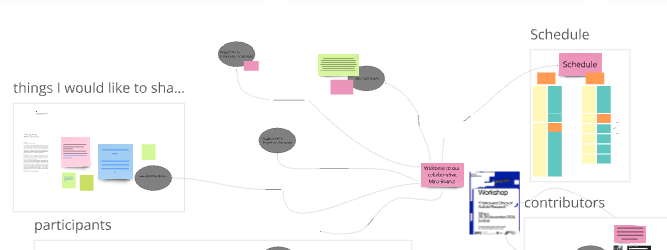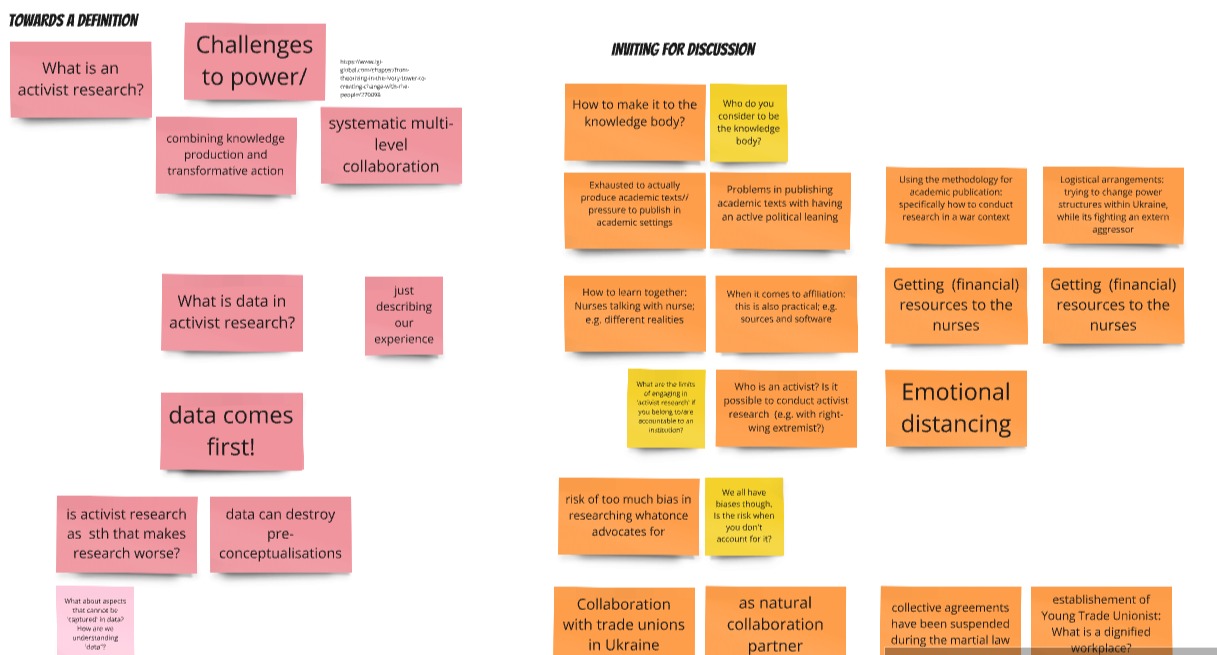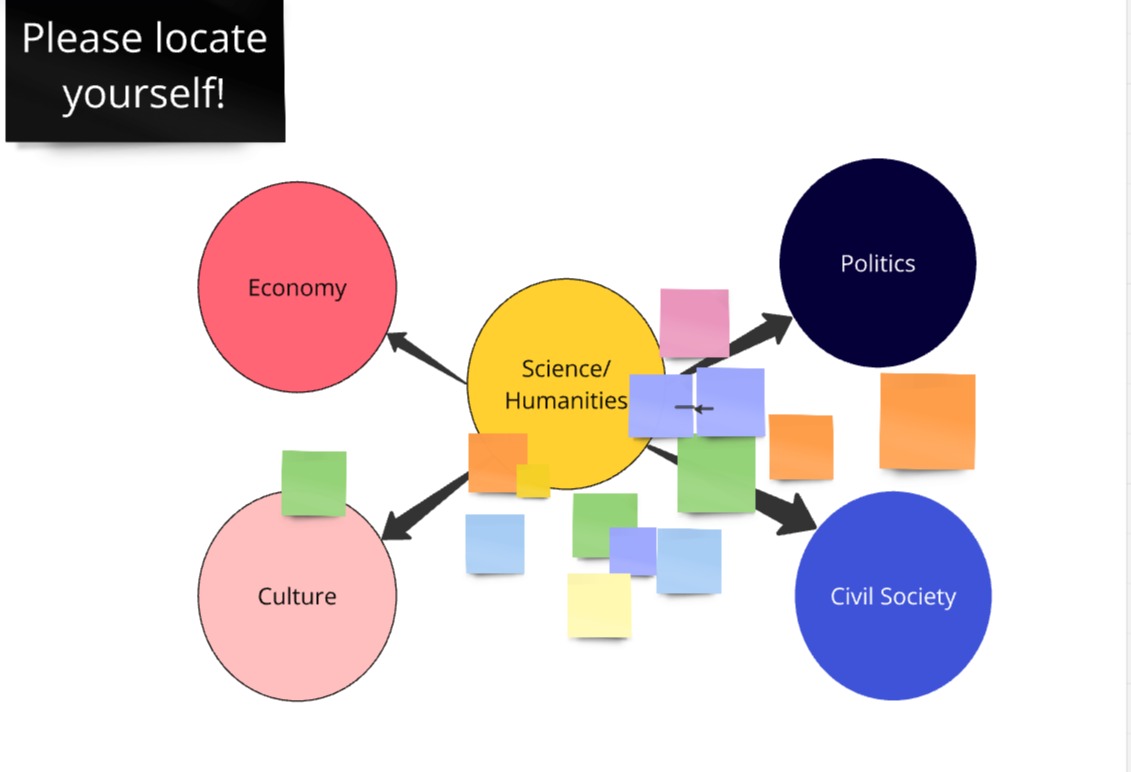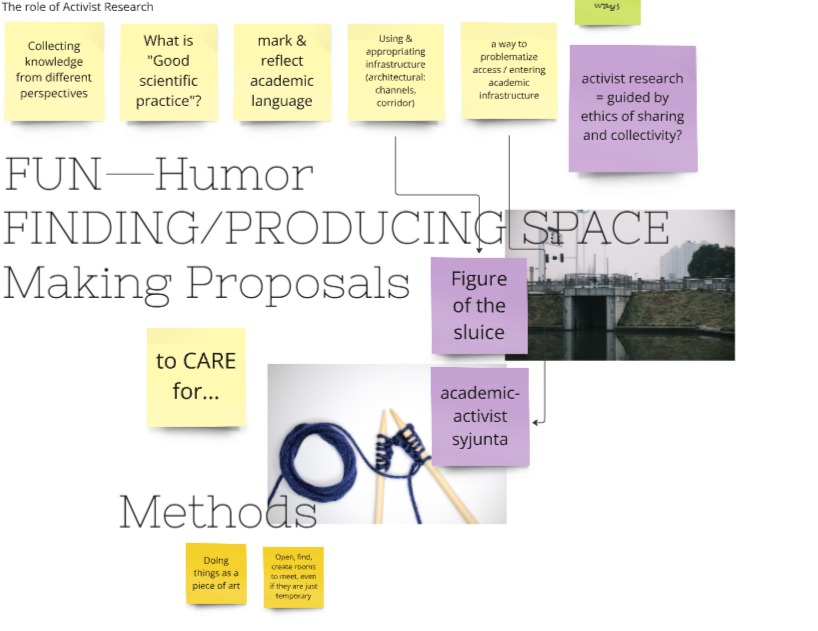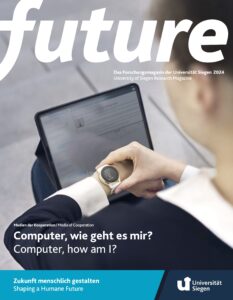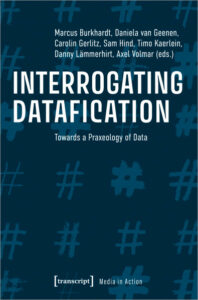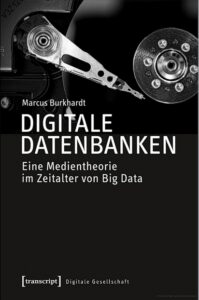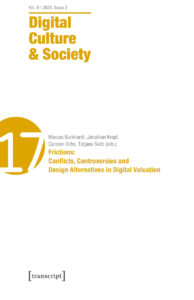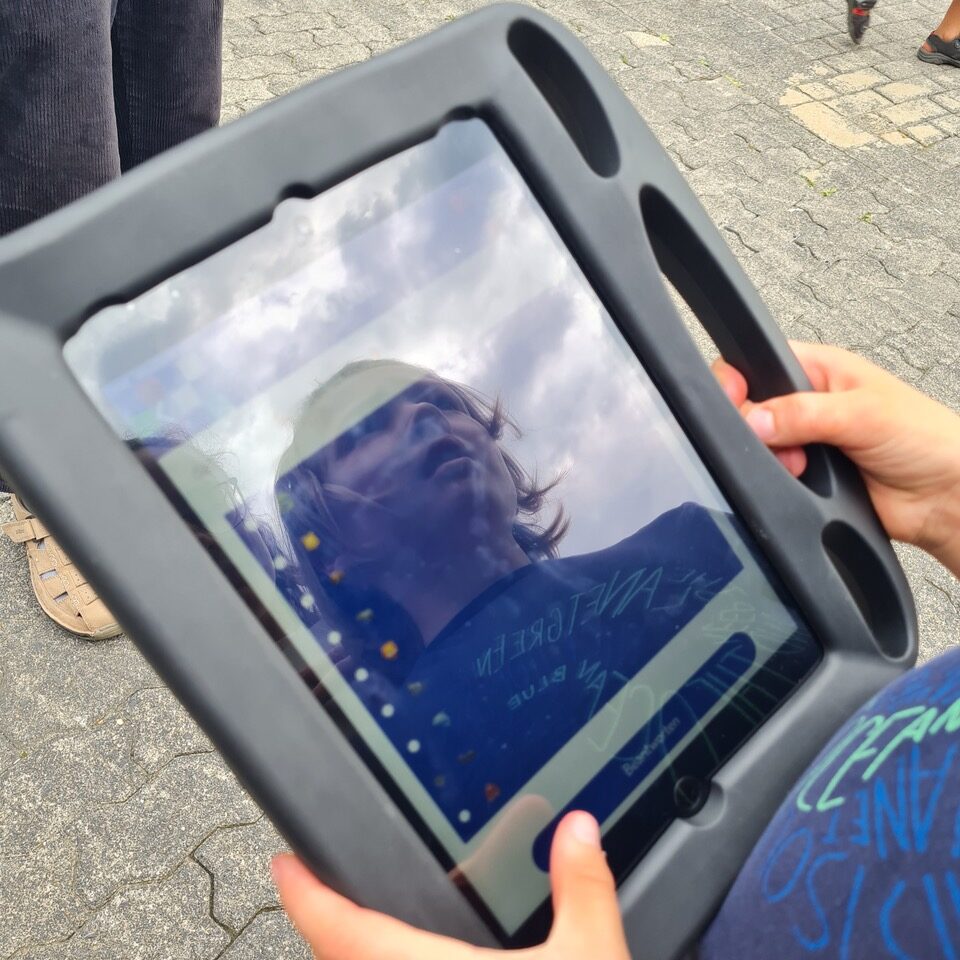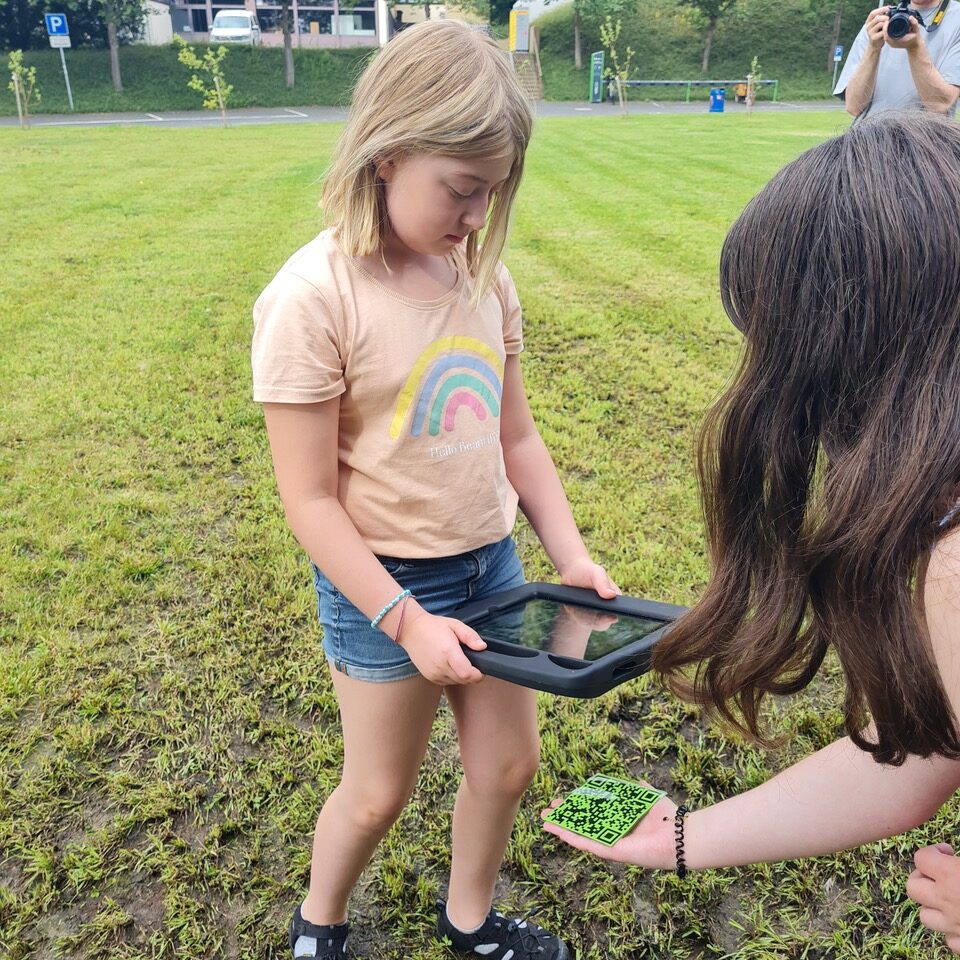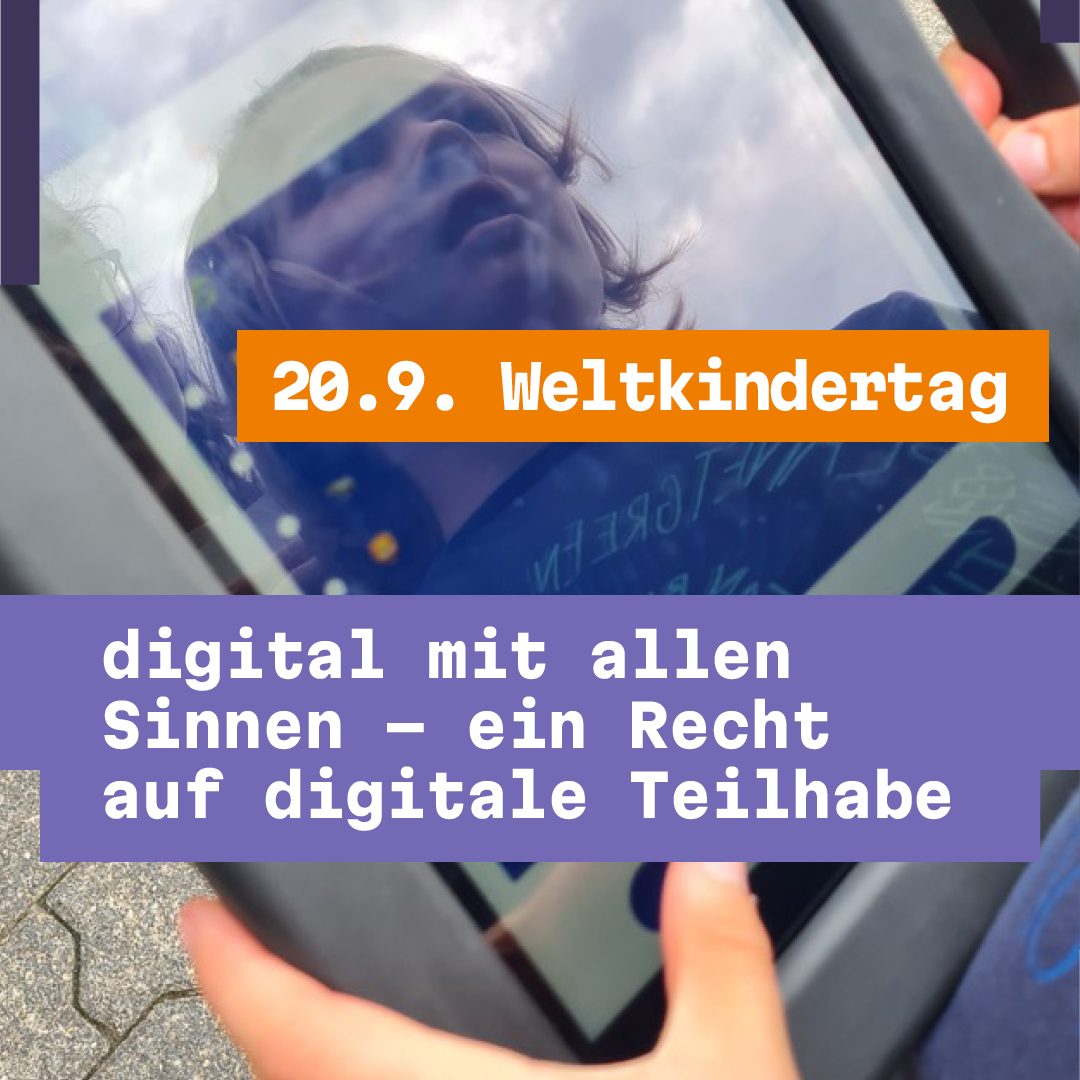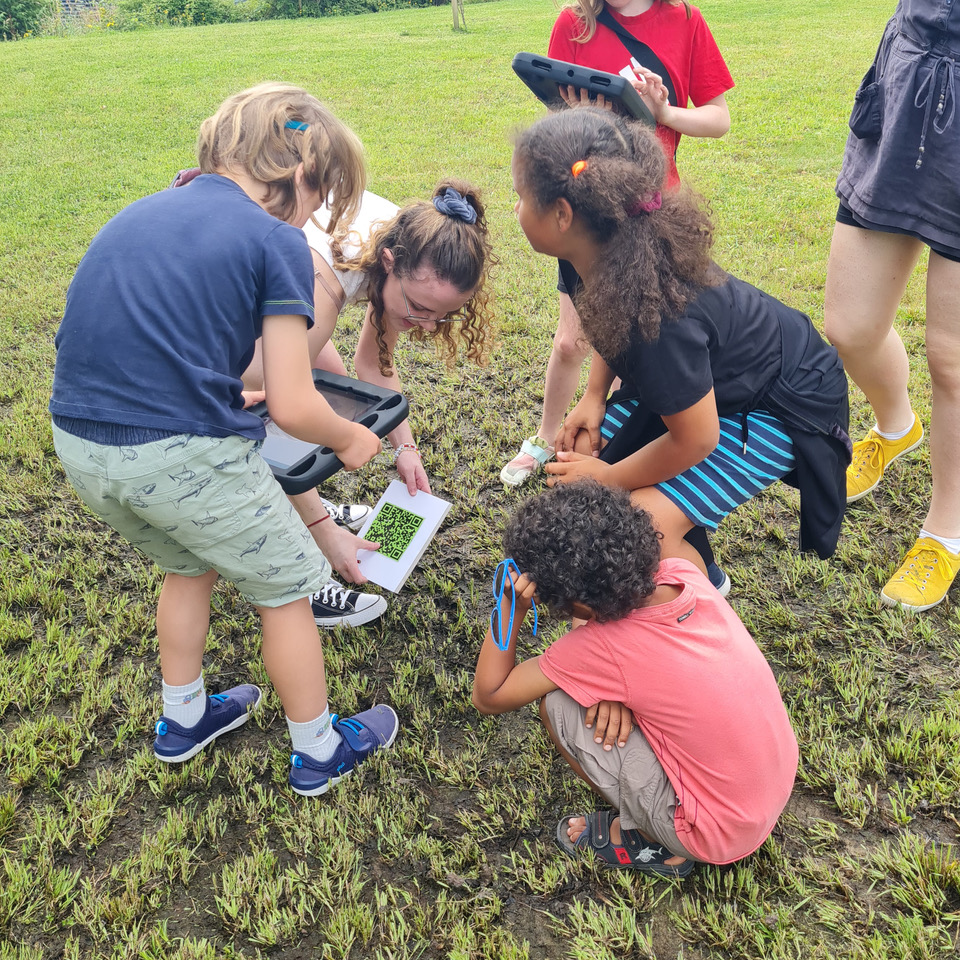News
A Workshop Summary (November 25 & 26, 2024)
written by Miglė Bareikytė, Julia Bee, Johanna Hiebl, Hannah Schmedes and Xenia Waporidis
Our workshop on the Politics and Ethics of Activist Research in November 2024 brought together scholars and activists to explore ways of doing activist research and the question of how academic research can collaborate with activist practice. In times of democracies being at risk of climate catastrophe and war in Europe, one of the meaningful ways of conducting research is to engage with the issues that are pressing and work alongside those experts from civil society who have the deepest understanding of them. Two CRC 1187 “Media of Cooperation” projects B09 – “Bicycle Media” and P06 – “War Sensing” – organised the workshop to bring together activists and researchers. The two-day event brought together approximately 60 international scholars and activists online to share their experiences, address challenges, and discuss ethical concerns related to activist research. Rooted in the interdisciplinary focus of the CRC “Media of Cooperation” with its praxeological approach to digital and data-based media, the workshop tackled key themes of collaborative knowledge production in an ethical way. It also addressed precarity and biases and advancing social justice through activist-academic collaboration.
As defined by scholars like Susan Strega and Leslie Brown, activist research is distinct from participatory methods in that it prioritises ethical co-production of knowledge and transformative action (Strega & Brown, 2015). The workshop’s goal was to explore and share how both researchers and activists can foster equitable collaboration and address the ethical complexities inherent in such work.
While activist research is always situated, it also follows global demands that allow it to intersect with the concerns, struggles and critiques of other cases that one is not directly involved in. Activist researchers aim to achieve particular situated goals that are oriented towards larger claims to power, such as improving the practice of justice or labour conditions. At the same time, activist research is embedded in old and new forms of controversy, involving the continuation of hierarchies between activists and scholars or the appropriation of struggles and their vocabularies. Activist research is thus an approach that goes beyond participation, demanding more resources for and analysis of ongoing cooperations between research and political struggles.
By critically engaging with concepts of activist research, the workshop aimed to move beyond traditional science communication with its focus on informing. Instead, it emphasised collaborative knowledge production with issue publics, such as mobility justice activists in the project B09 – “Bicycle Media” and civil society actors from Ukraine in the framework of the project P06 – “War Sensing”, both of which focus on working with activists.
These issues were addressed by two keynote speakers on the first day. Giancarlo Fiorella, the Head of Research from Bellingcat, elaborated on the potential of open science and open-source investigations to democratise research and blur the line between the researcher and the public, allowing for broader public participation in creating different forms of knowledge. Sevda Can Arslan, a media scholar from the University of Paderborn, made a strong case for the need to foster dialogue between academia and society in order to create knowledge that resonates beyond institutional boundaries. She also reflected on the tensions between applied research, public science, and science communication.
On the second day, the workshop was divided into three sessions, each looking at activist research from the perspective of case studies: 1. feminist archiving and editing practices, 2. mapping, and 3. collaborating with healthcare workers during the war in Ukraine. The case focus is important here because it illustrates how activist research is always embedded in particular communities and requires sustained attention in order to change the situation on the ground.
1
Chris Regn and *durbahn (bildwechsel/Who writes his_tory) hosted a session on feminist archiving and editing of Wikipedia, both of which emphasised the principles of inclusivity and shared knowledge production. Their activist practice aims to disrupt traditional archival practices by prioritising alternative, less represented narratives and amplifying voices that have been historically excluded from dominant historical accounts. Chris Regn and *durbahn illustrated how such archiving and editing practices challenge traditional epistemological hierarchies and call for a reflexive approach that acknowledges the researcher’s situatedness and positionality in knowledge production. A dynamic and lively discussion unfolded on the subject of integrating feminist archiving and web-editing methodologies into academic research practices. Inspired by practices such as Sweden’s Syjunta—a gathering of women to knit and talk—participants emphasised the value of creating alternative spaces for collaboration. Changing the physical environment was noted as a way of encouraging different forms of interaction. Two compelling metaphors emerged from this conversation: the sluice, representing the facilitation of collective practices, and weaving/knitting, symbolising the interweaving of diverse threads of knowledge and collaboration. These metaphors highlighted that activist research thrives on an ethic of sharing and collectivity, reshaping how knowledge is produced and disseminated to empower communities and challenge hierarchical norms.
2
The second session, led by Paul Schweizer (Kollektiv Orangotango), focused on collective mapping as a both research practice and a medium of cooperation practice. Examples from Indigenous land claims, urban housing crises, and pandemic-era mutual aid efforts demonstrated the dual nature of mapping in activism. Paul Schweizer identified key insights critical to the ethical use of mapping in activist contexts, distinguishing between internal mapping used as a community strategy and external mapping designed for public advocacy. He argues for mapping as a tool for activist issues. He also emphasised that research findings need be tailored to resonate with diverse audiences, ranging from legal courts to social media platforms, in order to maximise accessibility and impact. The discussion also highlighted the double-edged nature of mapping, where maps can empower communities, but also can expose vulnerable groups to risks. This prompted an examination of the necessity of discerning when mapping is not the optimal approach. The significance of reflexivity and ethical awareness was underscored, with researchers being urged to prioritise community safety and adopt context-sensitive practices to achieve a balance between the empowering potential of mapping and the ethical responsibilities it entails.
3
In a third session, Tasha Lomonosova (ZOiS), presented findings and insights from her collaborative research on nurses’ labor during wartime in Ukraine, exemplifying how activist research combines knowledge production with transformative action aimed at addressing and resolving social inequalities. Nurses from different parts in Ukraine actively participated in every stage of the research process, including conducting interviews with fellow nurses. This approach aimed to address and reduce power imbalances both within healthcare systems and between academic researchers and practising nurses who lacked formal research training. Tasha Lomonosova’s session highlighted the challenges of conducting activist research in wartime, such as the unequal power dynamics between Ukrainian and international collaborators, but also the resilience of collaborative research practices as transformative under conditions of war. Participants discussed practical dilemmas, such as how to navigate ideological differences within partner organisations and how to handle sensitive data that may conflict with activist goals, emphasising the need for researchers to be not only reflexive but also flexible. A key concern was to avoid the tendency to treat grassroots groups as monolithic entities, and instead to recognise their diversity and internal complexity.
Overall, the workshop provided a space to discuss the intersection of different approaches to activist research, including its practices, methods and ethical concerns, each drawing on specific cases. As organisers of the workshop, we want to thank everyone who joined this workshop for their mutual support and collaboration.
The project B09 – “Bicycle Media” investigates cooperative mobility practices of cycling. It contributes to a media-scientific concept of mobility against the background of the cooperative and sensory design of public spheres. Julia Bee is principal investigator in the project B09 – “Bicycle Media” at the DFG-funded Collaborative Research Centre 1187 “Media of Cooperation” hoilds a chair in Gender Media Studies with special emphasis on diversity at the Ruhr University Bochum.
Hannah Schmedes and Xenia Waporidis are researchers in the project B09 – “Bicycle Media” at the DFG-funded Collaborative Research Centre 1187 “Media of Cooperation” and are both doctoral researchers at the Ruhr University Bochum.
The project P06 – “ War Sensing” researches civilian documentary, archival and investigative media and data practices of war: War Sensing. The project thus makes a situated research contribution to the medial entanglement of the human and technical sensorium as well as to the knowledge politics of war. Miglė Bareikytė is is principal investigator in the project P06 – “War Sensing ” at the DFG-funded Collaborative Research Centre 1187 “Media of Cooperation” and holds the Chair for Digital Studies at European University Viadrina in Frankfurt (Oder).
Johanna Hiebl is a researcher in the project P06 – “War Sensing” at the DFG-funded Collaborative Research Centre 1187 “Media of Cooperation” and is a doctoral researcher at the European New School for Digital Studies in Frankfurt (Oder).
New issue of the research magazine future features the Collaborative Research Center “Media of Cooperation”
Under the title “Computer, how am I?”, the focus of the 6th issue of the research magazine future (in German and English) is on topics from the Collaborative Research Center (CRC).
→ Click here for the current issue
About the new issue
The new issue focus on the question what humans do with media and media do with us. Since 2016, the Collaborative Research Center (CRC) Media of Cooperation at the University of Siegen has been examining phenomena in digital society. This area is developing at a rapid pace. The researchers are increasingly focusing on sensor media and AI. They have found that machine and human sensory abilities are becoming increasingly intertwined.
Of humans and media (p. 4)
An article about the new research focus on AI and sensor media at the CRC.
From observer to actor. Today, algorithms in computer programs are autonomously making decisions (p. 11)
An article about the research in project B08 “Agentic Media: Formations of Semi-Autonomy”.
Live news from war zone: Social media and messenger services supply news and images from Ukraine daily (p. 18)
An article about the research in P06 “War Sensing”.
Blurring the boundaries of private life: Living in a smart home (p. 25)
An article about the research in B06 “Un-/desired Observation in Interaction: Smart Environments, Language, Body, and Senses in Private Households”.
Virtual pasture boundaries: Sensors are keeping animals in their place (p. 33)
An article about the research in P04 “Precision Farming: Co-operative Practices of Virtual Fencing”.
The research magazines frequents once every year since 2019 with a number of copies 3,500. All topics are discussed or determined together with the Research and Young Scientific Academics Commission, the Research Funding Unit and Prof. Dr. Thomas Mannel, the Prorector for Research and Junior Scientists. The main requirement for the decision is that it is cutting-edge research that is future-oriented. All issues are open-accessed.
Would you like to receive one or more print copies, for yourself, for national or international partners? You can order print copies via future@presse.uni-siegen.de. We will gladly add you to our subscription distribution list, free of charge, of course.
CRC 1187 congratulates Marcus Burkhardt on his appointment to the professorship for “Media, Algorithms and Society” at Paderborn University
The CRC 1187 “Media of Cooperation” congratulates Marcus Burkhardt on his appointment at Paderborn University! Since the winter semester 2024/2025, he has held the professorship for “Media, Algorithms and Society” there.
➞ Marcus Burkhardts’ profile at the University of Paderborn
Until his appointment, Marcus Burkhardt was a research fellow at the Media Studies Department at the University of Siegen and played a key role in shaping the CRC 1187 “Media of Cooperation” in recent years. As a project leader, he is responsible for two central research projects: B08 – “Agentic Media: Formations of Semi-Autonomy“ (together with Prof. Dr. Karin Knorr Cetina) and A07 – “Industry of Personal Data” (together with Prof. Dr. Maximilian Becker).
In addition to positions at the Digital Media Lab at the Technical University of Munich and a guest professorship at the University of Paderborn, he also led the Hybrid Publishing Lab at the Leuphana University of Lüneburg. He received his doctorate from the International Graduate Centre for the Study of Culture at Justus Liebig University Giessen with a thesis on the media history and theory of digital databases. Burkhardt’s research operates at the interface of media studies, philosophy and computer science. It is focused on the history and theory of digital media, critical software, code and algorithm studies, digital methods, cultures, and computational cultures. He currently lectures on “Prompting as a cultural technique” and “Digital media: approaches and controversies”.
His publications include the 2022 co-edited volume Interrogating Datafication. Towards a Praxeology of Data and his 2015 dissertation Digitale Datenbanken: Eine Medientheorie im Zeitalter von Big Data. In addition to various contributions to journals and edited volumes, he most recently co-edited the special issue “Frictions: Conflicts, Controversies and Design Alternatives in Digital Valuation” (2025) of Digital Culture & Society.
In 2015, he founded the open access publishing house Meson Press together with Mercedes Bunz and Andreas Kirchner, which specializes in open access publications on digital cultures.
mit:forschen! GEMEINSAM WISSEN SCHAFFEN: Der Forschungspreis geht an das Forscherteam A05 des SFB 1187: Medien der Kooperation.
Tanja Aal und Dennis Kirschsieper (beide Universität Siegen)
Der Beitrag „CareConnection – A Digital Caring Community Platform to Overcome Barriers of Asking for, Accepting and Giving Help” der Sozio-Informatiker/innen gewinnt stellvertretend für das Autor*innen-Team der Publikation den zweiten Platz des ‘Wissen-der-Vielen – Forschungspreis für Citizen Science 2024.
Über Preis und Beitrag
Die Citizen-Science-Plattform „mit:forschen! Gemeinsam Wissen schaffen“ dient der Präsentation deutschlandweiter Forschungsprojekte, die mittels partizipativer Ansätze Bürger*innen einbeziehen. Persönliche Erfahrungen und individuelles Wissen der Gemeindemitglieder werden in Entwicklungsprozesse integriert und erfahrbar gemacht. Hierdurch wird der Diskurs über individuelle Lebenswelten in verschiedensten thematischen Kontexten, Herausforderungen und gemeinsam erarbeitete Lösungsszenarien angeregt und Vernetzung zwischen Wissenschaft und Gesellschaft gefördert.
Der 2. Platz des hieran angebundenen ‘Wissen-der-Vielen – Forschungspreis für Citizen Science 2024 ging an das Forschungsteam des Teilprojektes A05 „Kooperative Herstellung von Nutzerautonomie im Kontext der alternden Gesellschaft“ des Sonderforschungsbereichs 1187: Medien der Kooperation der Universität Siegen. Die Preisverleihung fand am 09. Oktober in Hamburg statt. Wissenschaft im Dialog und das Museum für Naturkunde Berlin würdigten die Preisträger mit einem Preisgeld von 10.000 Euro.
Mit ihrer Publikation ‚CareConnection – A Digital Caring Community Platform to Overcome Barriers of Asking for, Accepting and Giving Help’ beschreiben die Forscher*innen Tanja Aal und Dennis Kirschsieper die Forschung und Entwicklung einer Online-Plattform, die den Aufbau einer lokalen (Online-)Sorgegemeinschaft unterstützt.
Jury-Statement: “Auf einer allgemeineren Ebene wird durch die Forschungsarbeit sehr deutlich belegt, dass Citizen Science einen wichtigen Beitrag zur menschenzentrierten Technikentwicklung leisten kann.“
Die „CareConnection”-Plattform wurde mit einem Community-Design-Ansatz und nach Prinzipien der partizipativen Forschung (Reallabor, partizipative Aktionsforschung) entwickelt. Im Zentrum stand dabei, psychologische und soziale Barrieren des ‚um Hilfe bitten, Hilfe akzeptieren sowie Hilfe geben‘ zu identifizieren und zu überwinden. Die Publikation entstand zusammen mit weiteren Co-Autor*innen, bestehend aus Bürgerforscher*innen und Studierenden, unter der Leitung von Prof. Dr. Claudia Müller (Lehrstuhl Wirtschaftsinformatik, insb. IT für die alternde Gesellschaft) im Kontext des von ihr geleiteten Forschungsprojekt am Sonderforschungsbereich. Veröffentlicht wurde die Publikation im Tagungsband von Mensch und Computer 2023.
Empirische Basis der Entwicklung dieser Plattform und medialen Infrastruktur ist eine qualitative Interviewstudie, die in Kooperation mit der Fachhochschule Bern sowie in co-kreativer Zusammenarbeit mit älteren Menschen einer lokalen Gemeinde im ländlichen Bereich nahe Zürich durchgeführt wurde. Die Ergebnisse flossen in einen ersten Design-Prototyp einer Community-Plattform ein, die das Suchen und Anbieten von Hilfe barrierearm ermöglichen soll.
Die Plattformentwicklung wurde inzwischen auf den deutschen Kontext übertragen und befindet sich in der dritten Entwicklungsstufe des iterativen Bürger-zentrierten Design-Prozesses. Weitere 8 Interviews und 6 Design-Workshops wurden gemeinsam mit Studierenden und Bürger*innen geführt und befinden sich nunmehr in der finalen Evaluation.
Ziel des dreijährigen Projekts war ‚Hilfe benötigen‘ zu entstigmatisieren. Es sollte sich gemeinsam, ganz nebenbei, und in einem geschützten, digitalen Raum begegnet werden, um Hilfe vertrauensvoll erfahren und selbst schenken zu können. Das Projekt fördert eine sozio-technische Gemeinschaft, in der die Autonomie und Selbstbestimmtheit verschiedenster Nutzergruppen und das individuelle Gesundheitsmanagement langfristig zu stärken.
Über die Forscher/innen
Die Wiederkehr des Konnektionismus
von Sebastian Gießmann (Universität Siegen)
Wie die Mediengeschichte Künstlicher Intelligenz geschrieben werden kann.
→ Artikel erschienen in der FAZ am 02.10.2024
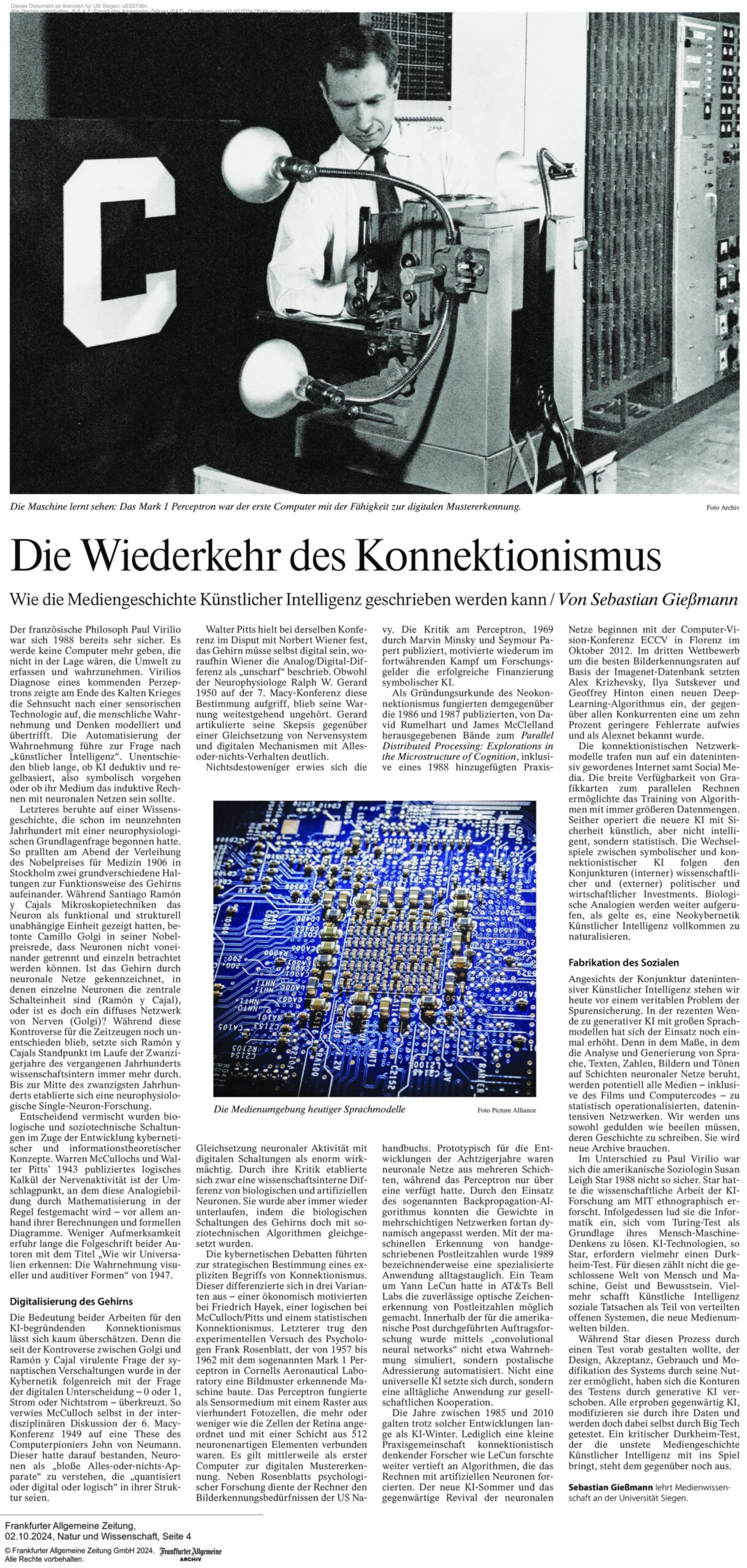
Über den Forscher
Sebastian Gießmann ist Akademischer Oberrat am Medienwissenschaftlichen Seminar der Universität Siegen und leitet das Teilprojekt A01: Geschichte digital-vernetzter Medien zwischen Spezialisierung und Universalisierung am Sonderforschungsbereich 1187 Medien der Kooperation.
Ein Klick, große Folgen: Wer entscheidet, was ein Like bedeutet?
Sebastian Gießmann (Universität Siegen) und Johannes Paßmann (Ruhr-Universität Bochum) heute Abend zu Gast in der DLF-Sendung “Systemfragen”
Der Beitrag fragt nach den Folgen von Likes auf Social Media.
Zur Folge
Zurücktreten wegen eines Likes auf Social Media: Diese Diskussion wurde etwa im Fall der Präsidentin der TU Berlin, Geraldine Rauch, geführt. Aber meint ein Daumen nach oben immer Zustimmung? Und wer entscheidet, was ein Like oder Emoji bedeutet?
Zu den Forschenden
“How Fact-Checkers are Becoming Machine Learners: A Case of Meta’s Third Party Programme”
Yarden Skop (University of Siegen) and Anna Schjøtt Hansen (University of Amsterdam, The Netherlands)
The paper of our CRC 1187 member Yarden Skop is honored as best student paper at the 2024 conference of the Association of Internet Researchers. The article will be published in the proceedings of the conference and will be available online on October 30th, 2024.

Hoa Mai Trần was invited as an expert on the topic of digital media in early education to a radio interview with WDR 5. The radio report “Digital media in nurseries: yes or no?” (author Corina Wegler) is about the municipal family centre ‘Krümelkiste’ in Arnsberg-Hüsten in North Rhine-Westphalia, which specialises in the use of digital media. The article highlights opportunities and limitations for early digital education and points to the current relevance of dealing with the realities of children and families in an increasingly digitalised world.
Hoa Mai Trần is a researcher in the CRC project (B05) “(Early) Childhood and Smartphone. Family Interaction Order, Learning Processes and Cooperation” and researches children’s digital gaming practices.
The radio feature is available until 28 May 2025 in the WDR Mediathek. It is only available in German.
Carolin Gerlitz is a full member of the Academy of Sciences and Literature in Mainz
At its last meeting, the Academy of Sciences and Literature in Mainz elected media science Professor Carolin Gerlitz from the University of Siegen as a full member.
Carolin Gerlitz holds the chair of „Digital Media and Methods“ the University of Siegen and is also the spokesperson for our Collaborative Research Center 1187 “Media of Cooperation”. She is principal investigator of the project A03 – Navigation in Online/Offline Spaces. Gerlitz is co-founder of the “Center for Digital Methodologies in Media, Language and Research” and a long-standing member of the Digital Methods Initiative and the Public Data Labs.
Gerlitz studied social and science communication in Berlin (Berlin University of the Arts) and gender, media and culture at Goldsmiths College, University of London, where she completed her Doctorate in Sociology. She then worked in London and Amsterdam before taking up a professorship at the University of Siegen in 2016. Gerlitz focuses on digital media technologies and methods as well as software and platform studies.
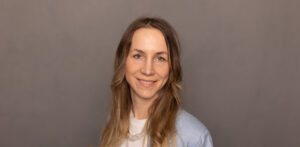
About the Academy of Sciences and Literature
The Academy of Sciences and Literature is a trans-regional association of personalities from the fields of science, literature and music. It serves to cultivate the sciences, literature and music and in this way contributes to the preservation and promotion of cultural heritage. The academy is a place of dialog that focuses on interdisciplinary exchange. The Academy in Mainz currently supervises 37 research projects from all disciplines with a focus on long-term basic research.
The members of the Academy are divided into three classes (Mathematics and Natural Sciences Class, Literature and Music Class, Humanities and Social Sciences Class). Carolin Gerlitz is a member of the humanities and social sciences class.
2 / 6

